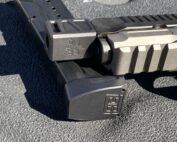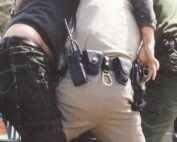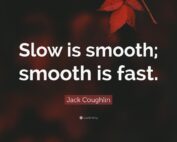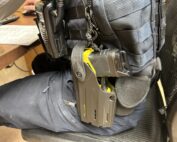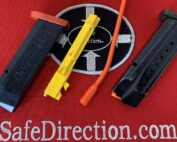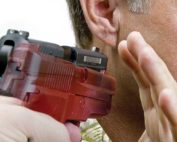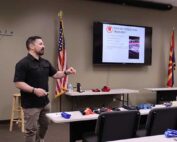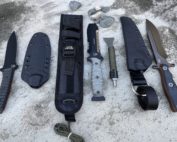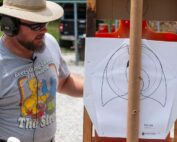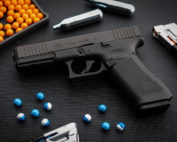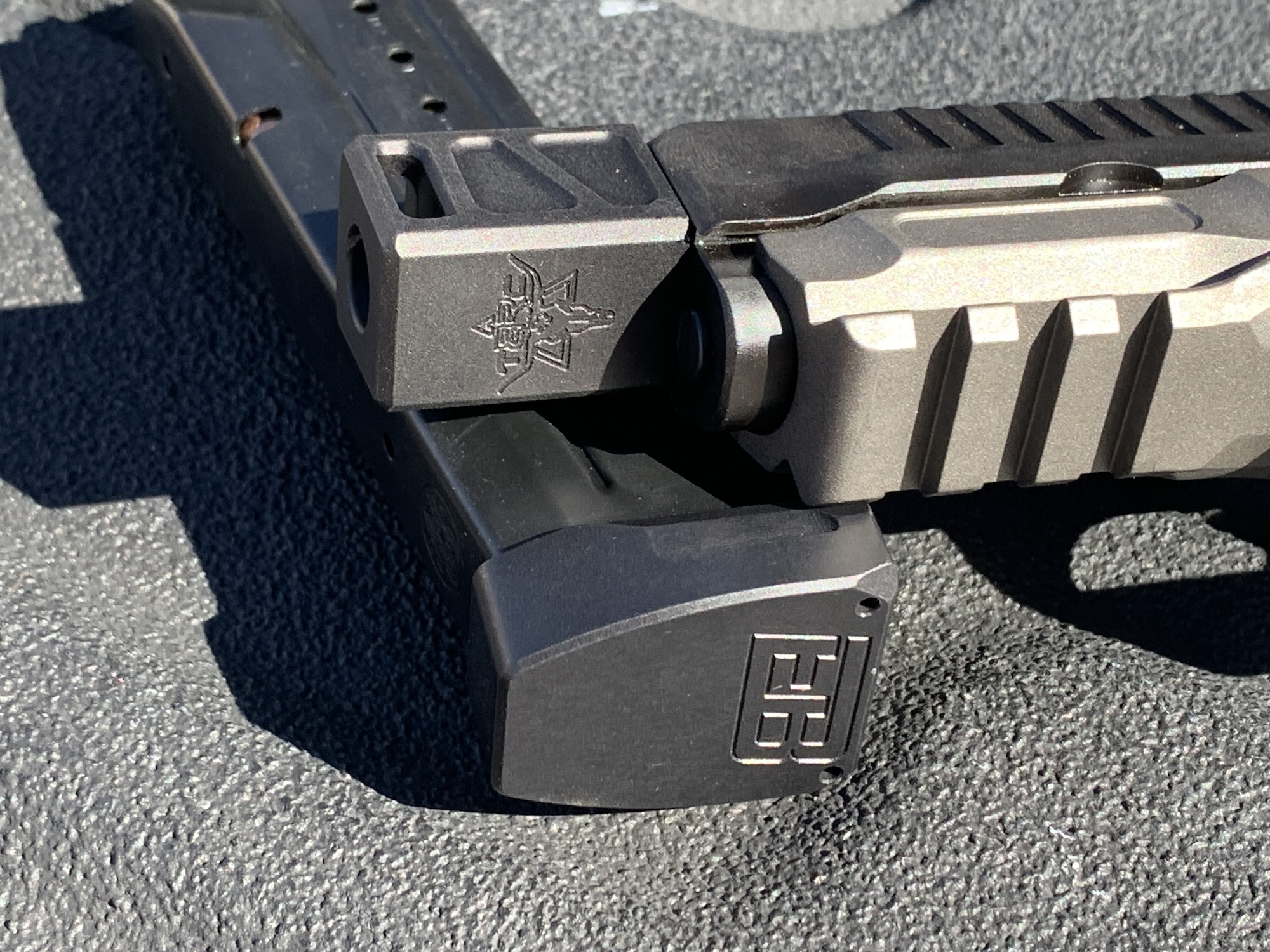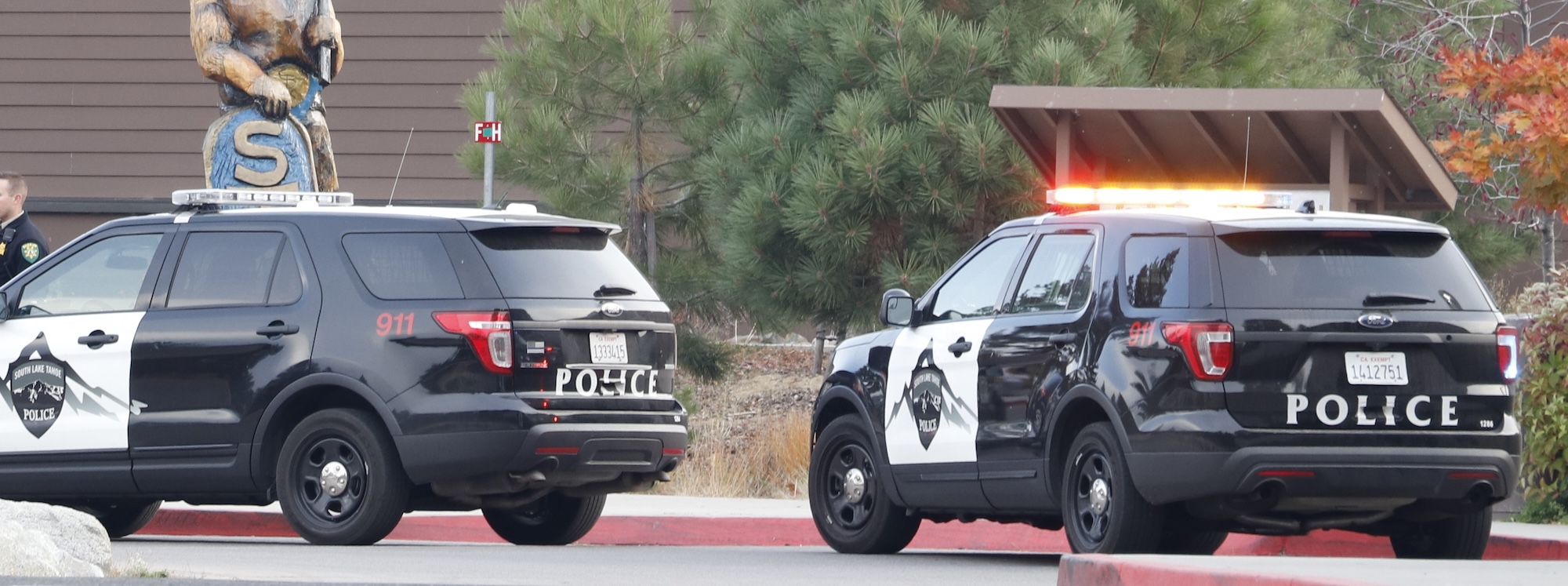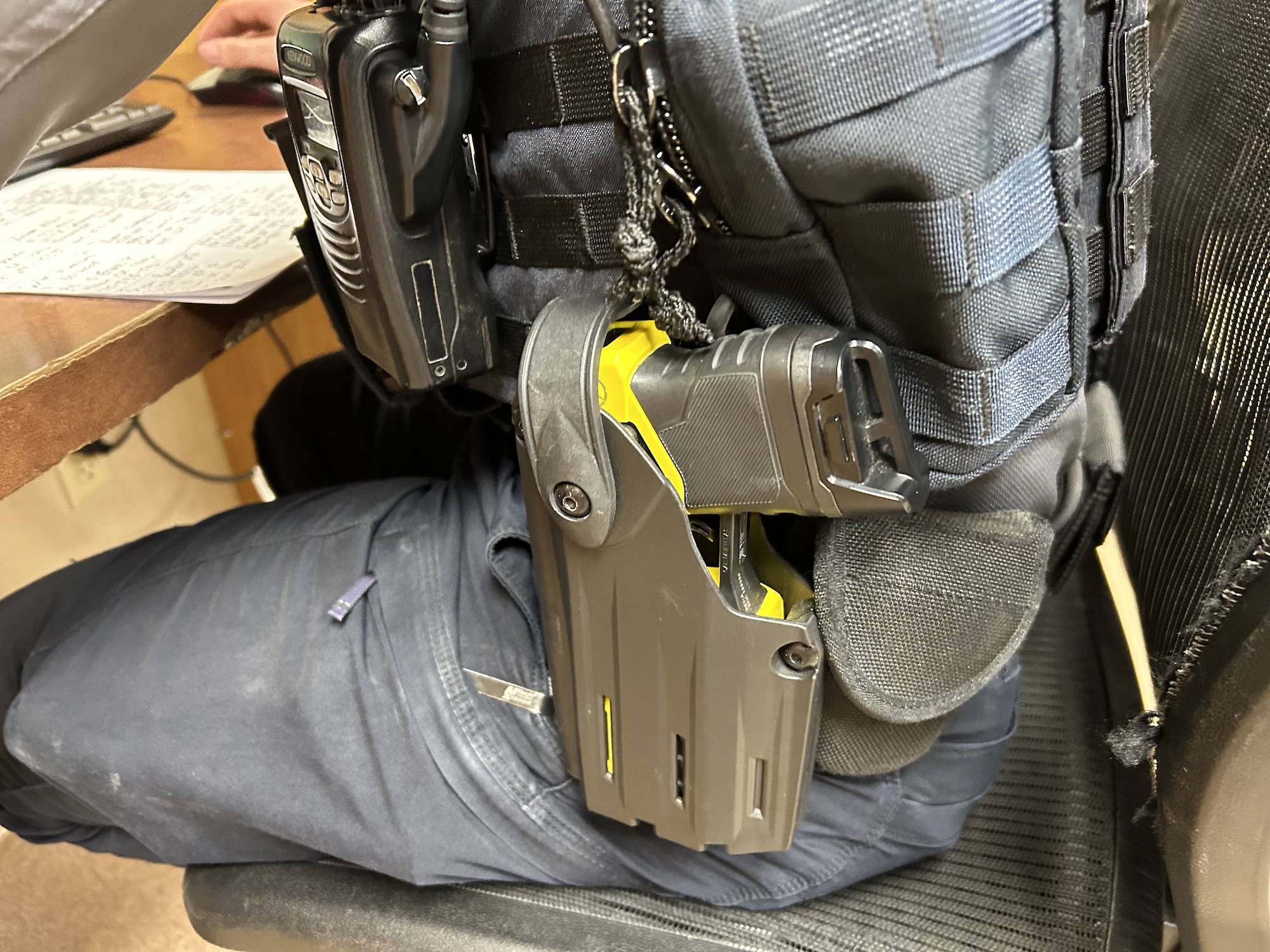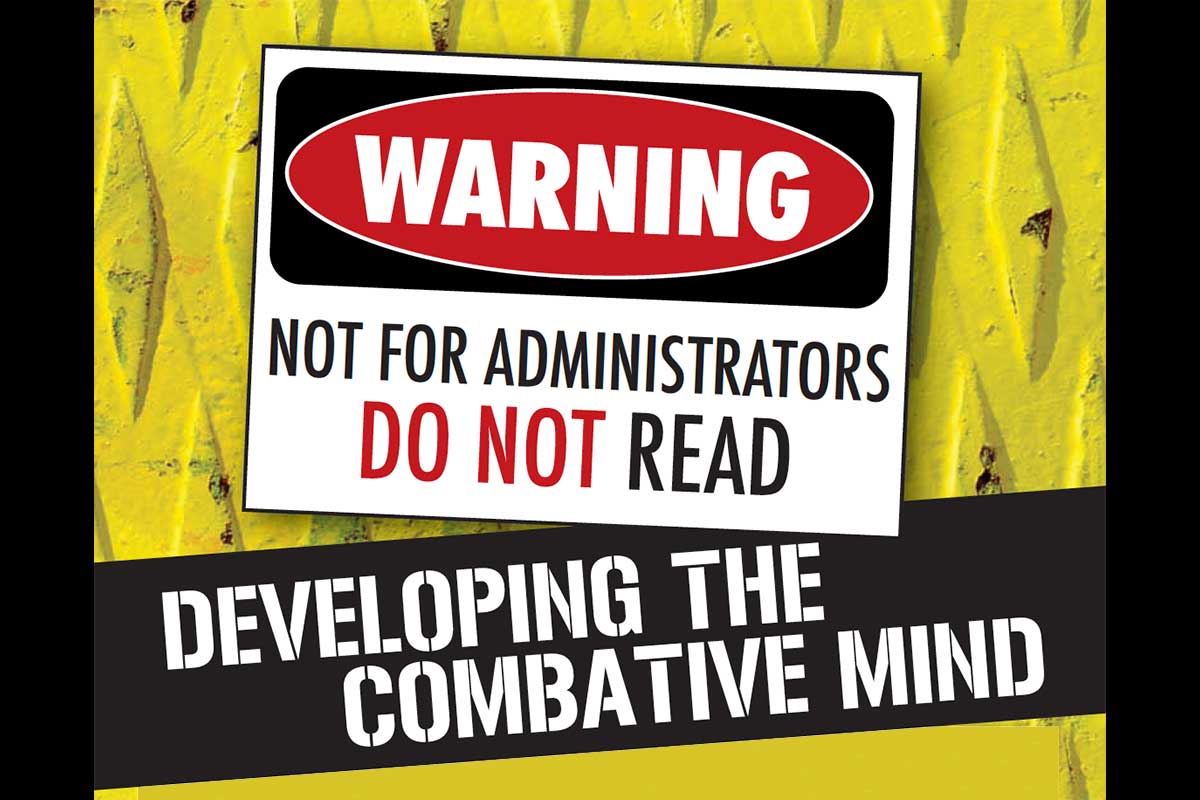
AC-Developing-LEAD-800
Since the early 1980s, the words “survive” and “survival” have been as much a part of cop lingo as hand-cuff, citation and emergency lights.
We’ve been bombarded with the phrases Street Survival, Officer Survival, the Will to Survive, Survival Mindset and Ultimate Survivors. The message Chuck Remsberg and Dennis Anderson, founders of Calibre Press, sent law enforcement was loud and clear. Due to their efforts, many cops who probably would not have lived to see their retirement did. They’re probably responsible for saving more law enforcement and military lives than any two men in history — and neither ever wore a police uniform. I’m truly proud to call them my friends.
According to Webster’s Dictionary, survive means “to remain in existence.” Sorry, but that’s just not good enough for me — or my students. I want them to go home unharmed, unscathed and ready to do it all over again. To me, survival is not what I want to instill in my student’s long- term database. I want them to be winners. I want them to prevail, which according to Mr. Webster means “to be victorious, to succeed.”
What does it take to prevail in any confrontation? It’s impossible to cover every potential life-threatening event, especially since most situations are outside our control. But, if we limit our discussion to the cop on the street and the confrontations they’re likely to face in the line of duty, then we can prepare. It involves developing a combative mindset — an awareness and willingness to do whatever it takes to come out on top, unhurt and ready to protect and serve another day.
GO ASK ‘EM
Many police administrators will flinch at the thought of their officers being combative. I argue it’s an essential tool of our primary mission. While 21st century law enforcement is certainly public-service oriented, the primary function is to protect the citizens we serve. Don’t believe me? Go ask ’em. Go out into your community and ask any citizen what they view as the number one function of their police department. They’ll tell you something like, “stop criminals,” “arrest bad guys,” “keep criminals from hurting me or my “keep criminals from hurting me or my family” or the ever popular “keep the streets safe for us.” Far too many police ” chiefs and sheriffs have forgotten this.
“According to Webster’s Dictionary, survive means ‘to remain in existence.’ Sorry, but that’s just not good enough for me — or my students.”
Let’s put this discussion into perspective. Picture in your mind you and your significant other walking carefree down the street when you’re approached by someone with a look on their face of great concern, maybe even fear. They tell you, “Down that alley is a suspicious looking person who I think is up to no good.” As a normal citizen, what would your response be to this situation? Yes, you’ll likely get on the cell phone and dial 911. And, you’ll probably give the alley a wide berth going nowhere near it. Now, let’s picture the same situation, except this time you’re a uniformed officer walking down the street — now what’s your response? Yup, you call for backup and at some point you’ll be going down that alley and confronting this suspicious person. That’s what we do; what we are paid for, what the citizens in the community we are employed by expect of us. You better have a combative mindset.
Back to our good friend Mr. Webster again: the word combat means, “to counter or actively oppose; to fight back.” Combative means: “ready and willing to fight,” while mindset is defined as, “a course of action based on a previous decision, a set path based on reason and intellect.” It would be fair to say that the combative mindset is defined as, “a previous decision based on reason and intellect to be ready and willing to fight back.” What’s wrong with this? It doesn’t say a thing about attacking people, being heavy handed or using excessive force. It states that if attacked or confronted, you’ll be ready and willing to fight back based on reason and intellect.
IT’S NOT EXCESSIVE FORCE
Where does reason and intellect come from? From your life experience and training. If the officer’s training is sound and complete and nothing in their past life has led them to feel they need to be excessive, then why would they? Teaching cops to have a combative mind is not an excessive force problem waiting to happen. It’s a wise investment in a valuable commodity.
How do you develop a combative mind? The words “previous decision” are most important. You must decide that this is the path you want to take and actively pursue it through training. The more combat skills acquired through training an officer possesses, the more likely they’re able to fight back in a life-threatening event. Cops must be confident in their skill and ability. If they don’t believe they can actually perform a particular technique, they won’t try to use it in the street.
“Teaching cops to have a combative mind is not an excessive force problem waiting to happen. It’s a wise investment in a valuable commodity.”
Combat skills range from verbalization (also called Verbal Judo) through defensive tactics, chemical sprays, electronic devices, impact weapons and finally deadly force via firearms. Cops need to be as skilled as possible in all levels of force. Are you? Even though the threat is real, skill levels vary widely. How skilled can anyone be when they only attend in-service training a few times a year? The answer is, not very unless officers are willing to practice on their own time and the techniques learned are simple to practice and execute.
THE THREE S TEST
For a number of years, I’ve used the Three S Test to evaluate techniques I’ve been taught in various training programs. I think it’s a valid measuring device anyone can use.
The first is Simple. Is the technique being taught simple to execute or per-form? If not, what’s the likelihood the technique will be easy to accomplish in the middle of a fight? What’s the likelihood that the average officer will practice the technique once training is over? Simplicity will make this more likely.
Second is, does it Make Sense? Does the technique make sense to you? You’re a person with a great deal of life experience and a reasonable level of police training. Some have extensive training or even military experience. If it doesn’t, talk to the instructor and express concern. After all, you (or your agency) are paying to be there. If the instructor can’t address your concern, you’re wise to dismiss the technique.
The third rule is: is it Street Proven? Has the technique been used in actual street combat? Really, ask the instructor. If not, do you want to be the guinea pig for this new technique? Not me dude.
FIGHT OR FLIGHT
This type of evaluation will help any officer be more confident in their combative abilities. History has shown that anyone who faces an armed threat will respond in one of four ways; fight, flight, freeze or posture. Fighting back or fleeing can be a proper, or even wise, course of action. Don’t underestimate the advantages of withdrawal. As Clint Eastwood so aptly said, “A man’s got to know his limitations,” but freezing and posturing are unacceptable— and perhaps deadly. The dangers of freezing in the face of danger are obvious, but many feel they can bluff their way out of a confrontation. Nothing could be further from the truth or more dangerous.
My law-enforcement career has spanned almost three decades. Seven years were different tours in the county jail. I spent a lot of time dealing with and getting to know how criminals think. It’s wise to remember many of these offenders didn’t grow up the same way you or I did. Many grew up in poor inner-city neighborhoods where they knew who the local crack dealer was by age six.
The biggest mistake any cop can make is to apply his or her own thoughts, feelings, morals or outlook to the way a criminal thinks. It’s likely they’ll not respond the way you thought they would. A cop in my area confronted an armed suspect and tried to defuse the situation by putting her gun on the ground and dropping to her knees, thus showing a less threatening posture. The suspect responded by shooting her through the neck. Never base a decision on how to deal with an armed suspect by applying your logic.
TAKE CONTROL
I’ve talked about being ready and willing to fight, but willingness means other things besides being prepared to punch, strike, zap or shoot. It also means being willing to attend training — even if it is on your time and at your own expense. Cops need to realize, it’s their life on the line in that dark alley at two o’clock in the morning. The chief or sheriff will undoubtedly be home in bed. If the officer doesn’t have the needed skill, they will not prevail— it’s that simple. We must be willing to buy our own equipment if what’s issued doesn’t fit our needs. “To hell with it, I’m not spending my money on police junk” is just the attitude your potential opponent wants you to have. Go ahead and help him out. I’m sure he’ll thank you.
Being willing to read magazines like this one to keep abreast of new tactics, techniques and information. It’s also a solid step towards developing the combative mind. Information is power and we can never have too much power when we’re patrolling the streets trying to place ourselves between the bad guys and the honest citizens we serve. Something like this won’t happen to you, you say. Sorry I wasted your time. But experience has shown me that right now someone is preparing so that when they meet you, they beat you. My advice is to train hard and stay on guard. Oh yeah, have the mindset to be ready and willing to win.

